PERCEPTUAL SPEED
Training Hawaii’s Players to Perform like World-Class Athletes
Superhuman, out-of-this-world, unbelievable; these are the words reserved for the most spectacular of athletic feats. For a few years now, researchers have been zeroing in on the magic that allows special athletes to seemingly defy nature with uncanny anticipation, jaw-dropping blind passes, and astoundingly accurate split-second decisions.
While such skills are often thought to be a result of God-given talent, scientific research shows that, in fact, they are facilitated through perceptual speed; that is, mental quickness and brain clarity that allow the body to move without conscious thought. What really sets the special athletes apart is their ability to act and react at a fraction of a second faster than their opponents.
Even more interesting, the research shows that these skills—cognitive-perceptual processing speed—can be trained and amplified. The eyes can be trained to load the brain with the most relevant visual cues and information. And the brain can be trained to recognize, process and react in an instant. The pairing of technology with vision is leading to better skill development and improved athletic performance at elite levels.
To help top professional and local athletes develop such visionary skills, Eye Center of Hawaii has taken a leadership role and made a significant investment to bring cutting edge sports vision and sensory training services to the islands.
Combining our retinal and neurosurgical knowledge and experience with the sports expertise of Nike SSP physicians and their team, RIH has added a revolutionary dimension and training system to complement its state-of-the-art diagnostic equipment and laser treatment facilities.
Our brand new 1,200-square-foot RIH Human Performance and Sensory Center of Excellence, featuring the Nike SPARQ Sensory Station and Nike Strobe eyewear, will serve as the base of operations for NIKE SPARQ Sensory Performance training in Hawaii. Integrating both neurosensory and physical training, athletes are able to measure and improve all parameters related to athletic performance.
The Center of Excellence is the first clinic to deliver high-tech sensory training services to Hawaii’s collegiate, varsity and junior level athletes. The evaluation and training stations in place will have the capability to train athletes of all abilities.
Helping Hawaii’s athletes reach their full potential
Sports and exercise are vital for optimal growth and learning—stimulating physical, cognitive, emotional and social development. Helping student athletes to identify their vision weaknesses and strengths creates a platform for comprehensive sports training. BEI will be working with athletes of all ages from both the private and public sector to help them achieve consistent levels of performance. Targeted sports will include football, baseball, lacrosse and similar disciplines with high visual demands.
Defining the difference between quick and fast
The Nike SPARQ Sensory Station is a standalone tower with a visual display monitor that adjusts to the athlete’s height. The station is used for both evaluation and training. The athlete stands at arm’s-length in front of the tower and responds to prompts, which challenge and test the athlete’s visual and visual-motor skills.
In the evaluation phase, a visual performance profile is generated to identify the athlete’s sensory strengths and weaknesses. The profile also compares results against years of data collected from collegiate and professional athletes.
In the training phase, visual drills on the tower are combined with more sport-specific field drills using the Nike Strobe eyewear.
Strobe training develops the athlete’s sensory system by interrupting the delivery of visual information to the brain. By performing drills and practicing skills under situations of reduced visual input, athletes are forced to make better use of the limited visual data and are trained to become more efficient in processing information.
Three steps to increased perceptual speed
BEI’s sports vision training services follow a three-step protocol:
- Evaluation: Using the Nike SPARQ Sensory Station, the athlete undergoes a 30-minute evaluation of 10 visual skills known to be important to athletic performance—visual clarity, contrast sensitivity, depth perception, near-far quickness, target capture, visual endurance, perception span, eye-hand coordination, go/no go decision making, and hand reaction time.
- Eye Exam: A comprehensive eye exam is conducted to determine the current status of the athlete’s vision and to assess whether any type of vision correction is needed.
- Training: The athlete completes five to 10 sports vision training sessions at the Center of Excellence following a program tailored specifically to the athlete’s sport and his or her sensory strengths and weaknesses.
BEI plans to offer a courtesy shuttle service to bring students to and from the Center of Excellence, says BEI’s sports vision optometrist Dr. Kellen Kashiwa, member of the Sports Vision Section of the American Optometric Association.
Science Behind the Technology
There are two key questions regarding the efficacy of sports vision training at the Center of Excellence:
Do the vision traits tested on the tower provide a reliable measure of visual performance skill?
Does strobe training, using the specialized eyewear, improve cognitive-perceptual ability?
These questions were addressed in two separate and independent scientific research studies, the results of which were published in professional journals last year.
Reliability of measures
In June 2011, a research team from Pacific University College of Optometry in Oregon tested the reliability of the visual performance measures assessed by the Nike SPARQ Sensory Station. They found that the measures tested on the tower do, in fact, provide a reliable measure of visual performance skills.
Strobe training
In October 2011, a research team from Duke University studied whether stroboscopic training resulted in improvements in an athlete’s perceptual-cognitive abilities. They found that such training can effectively improve motion perception and focused attention, which are critical to performance in many sports.
“There are also residual benefits to sports vision training,”
says BEI founder and president Dr. Michael Bennett.“Vision training can have a positive effect on the way students focus in school and can help people with low vision.”
Take your performance to the next level
Perceptual speed is difficult to improve in any meaningful way within the boundaries of even the best-designed strength training programs. BEI is committed to helping local athletes reach their goals with an individualized sensory training program to challenge their visual system and enhance their perceptual speed.



Happy 4th of July 🇺🇸
We’re wishing everyone a safe and enjoyable weekend. Whether you're spending it with family, friends, or just taking it easy—have a great one! ... See MoreSee Less
0 CommentsComment on Facebook
🕶️ It’s National Sunglasses Day!
Protect your eyes—and look great doing it. ☀️
Come check out our line of Maui Jim sunglasses—designed here in Hawai‘i and perfect for island life. 🌴
Visit our Optical Shops in Kona or Kaua‘i and find your next favorite pair! 🌺
#NationalSunglassesDay ... See MoreSee Less
0 CommentsComment on Facebook
💧 It’s National Hydration Day!
Did you know that staying hydrated helps support your eye health? When your body is dehydrated, it can reduce tear production—leading to dryness, irritation, and blurry vision.
Drinking enough water helps keep your eyes comfortable and your vision clear, especially in warm, sunny weather. ☀️ So grab your water bottle and take care of your eyes from the inside out! 🌊 ... See MoreSee Less
0 CommentsComment on Facebook
Helping you see the world more clearly. 👓😊 Dr. Safi in our Kauai location loves making every step of your eye exam comfortable and personalized. ... See MoreSee Less
0 CommentsComment on Facebook
Happy Father’s Day to all the Dads across the islands! 🌺
Thank you for all you do—for your families, your communities, and everyone who depends on you.
We appreciate you today and every day. 💙 ... See MoreSee Less
0 CommentsComment on Facebook
Your eyes work in amazing ways! Keep them healthy with regular check-ups and good care. 👁️
#FunFactFriday ... See MoreSee Less
0 CommentsComment on Facebook